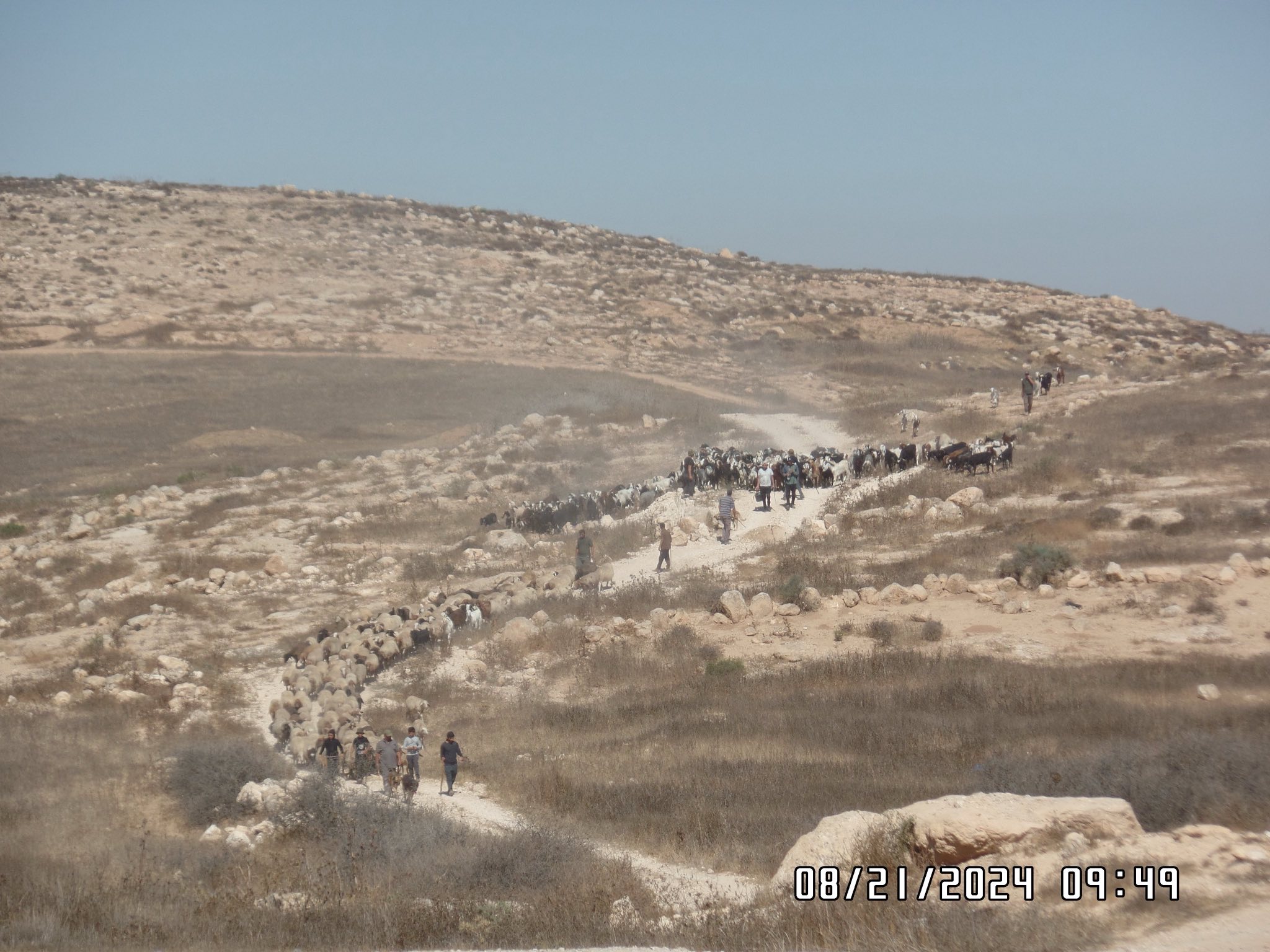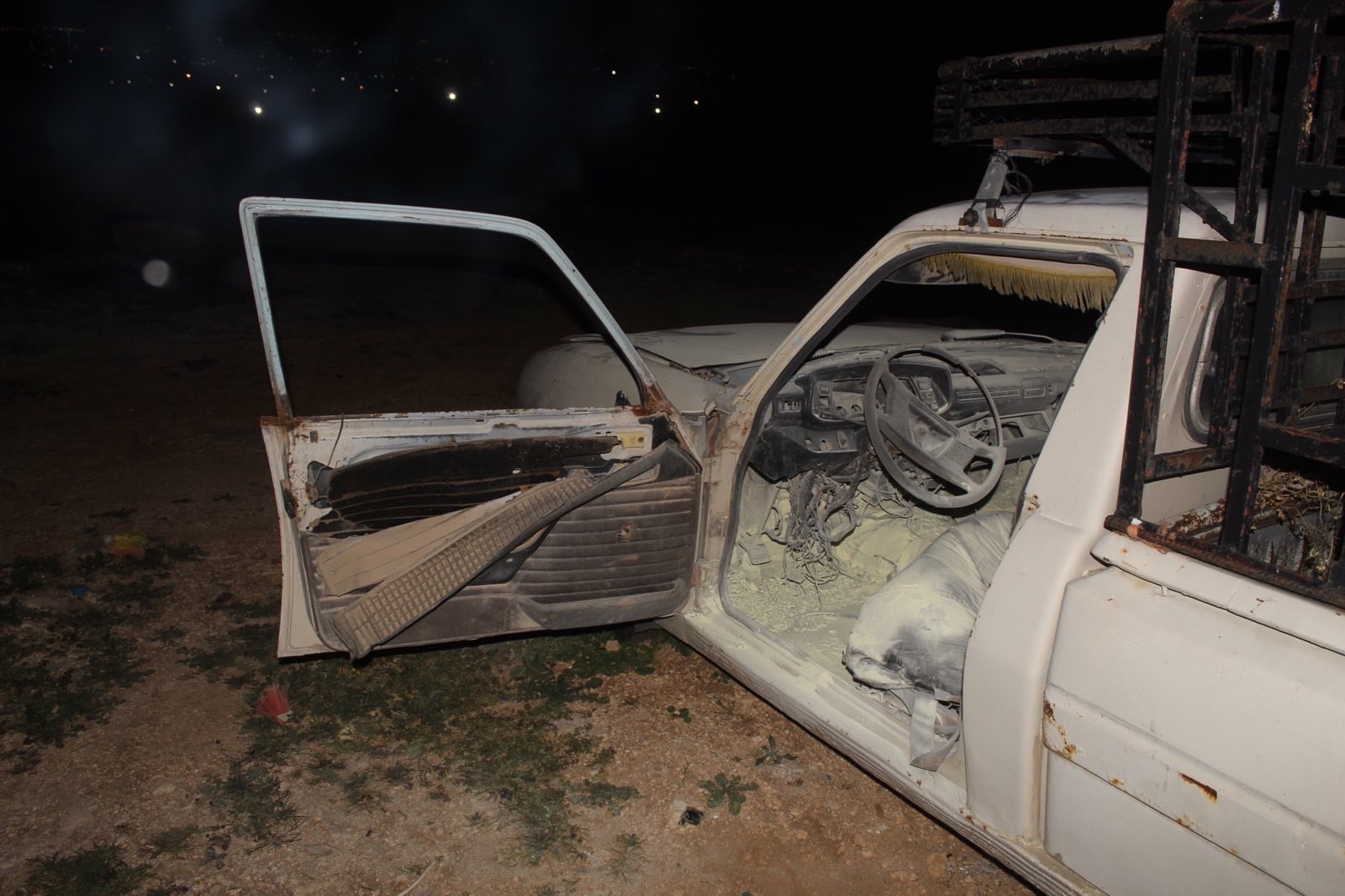Tag: Masafer Yatta
-

Zanuta: A Story of Return
26 August 2024 | International Solidarity Movement | Zanuta On Wednesday, August 21, following a long overdue court order, the families of Zanuta, in the South of the West Bank, returned to their village for the first time in 10 months after being forcibly displaced, determined to rebuild their home from the rubble of their…
-

Palestinian Family at Um Darit Harassed and Isolated
Acts of harassment and terror are a daily fact of life for residents of Masafer Yatta, a collection of rural hamlets at the southern end of the West Bank. One example is Mohammed Abed’s family in Um Darit, where they are surrounded by a rapidly expanding network of illegal settlements. After the Israeli escalation in…
-

Masafer Yatta: Israeli Settlers Burn a Family Car in Um Dhorit
17 March 2024 | International Solidarity Movement | Masafer Yatta Last night, illegal settlers burned a family car in Um Dhorit, in Masafer Yatta. They snuck onto the family’s land and set fire to the family only car in an attempt to make it irreparable. On previous occasions, the settlers have stolen the license plates,…
